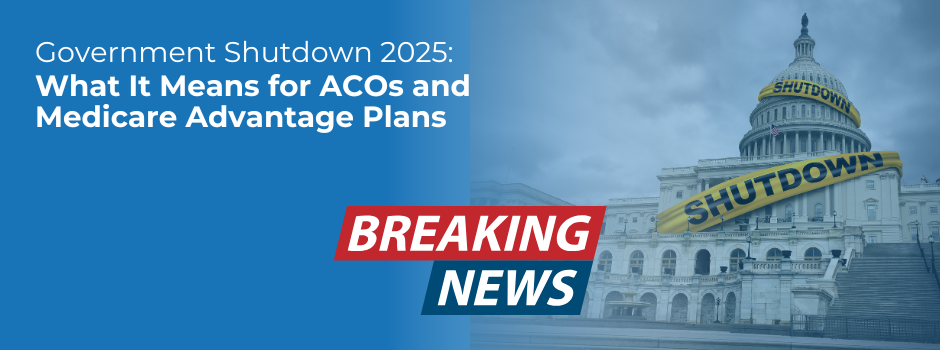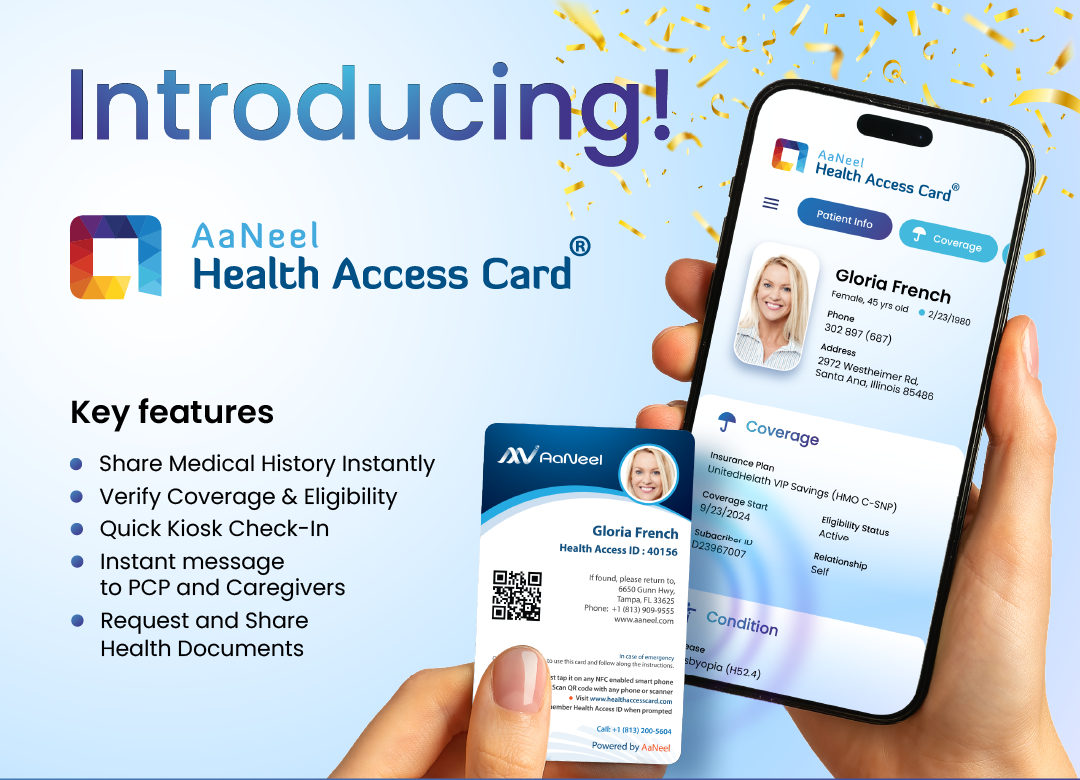Government Shutdown 2025

Government Shutdown 2025: What It Means for ACOs and Medicare Advantage Plans
When a government shutdown hits—as it did on October 1, 2025—healthcare doesn’t stop, but it does slow down.
While mandatory programs like Medicare and Medicaid keep operating, staffing cuts, regulatory pauses, and delayed claims ripple across the healthcare ecosystem. For ACOs and Medicare Advantage (MA) plans, those ripples can become real operational challenges.
Here’s what the 2025 government shutdown means for healthcare leaders navigating value-based care, what’s still uncertain, and how to prepare for the weeks ahead.
How CMS and HHS Operate During a Government Shutdown
During a government shutdown, agencies like HHS and CMS scale back to essential operations only. About 59% of HHS staff and 53% of CMS employees remain on duty to protect life and property.
That means core functions—like payments to providers and MA plans—continue, but many administrative and oversight functions slow dramatically.
-
Medicare claims processing is subject to a temporary 10-business-day hold to prevent reprocessing if Congress acts retroactively.
-
Medicare Advantage capitation payments are part of mandatory spending, so they continue uninterrupted.
-
Temporary waivers, including telehealth and hospital-at-home, expired on September 30 and require Congressional action to be reinstated.
The net effect: healthcare payments persist, but flexibility, innovation, and responsiveness all tighten under shutdown conditions.
How the Government Shutdown Impacts ACOs
1. Telehealth Coverage and Continuity
For ACOs participating in the Medicare Shared Savings Program (MSSP) with downside risk, telehealth services can still extend beyond geographic limits. However, not all telehealth codes remain reimbursable. Each ACO should review coverage details carefully during the shutdown period.
2. Claims Delays and Data Lag
The claims hold creates cash flow stress and delays in reconciliation data. For ACOs relying on timely analytics to manage performance, even short-term lags can disrupt forecasting and incentive payments.
3. Policy and Rulemaking Delays
During a government shutdown, CMS pauses most new model launches and regulatory updates, including those from CMMI. That means slower progress on new ACO initiatives, model updates, and quality measure changes.
4. Expiration of Temporary Waivers
Without renewal, the telehealth and hospital-at-home waivers lapse, forcing many organizations to reconfigure remote care programs. For ACOs managing inpatient-at-home cohorts, this could mean rising costs and disrupted patient continuity.
Medicare Advantage During a Government Shutdown
1. Payment Continuity
Capitation payments to MA plans continue as they are considered mandatory expenditures. MA organizations will not see funding interruptions but may face downstream administrative issues.
2. Administrative Slowdown
Furloughed CMS staff means longer timelines for plan amendments, audits, and marketing material reviews. Expect delays in approval cycles and compliance communications.
3. Member Services and Appeals
Appeals, grievances, and regulatory communications may take longer to process during the shutdown, impacting member satisfaction and oversight responsiveness.
4. Telehealth and Benefits Adjustments
MA plans following Medicare’s telehealth policy may need to temporarily adjust benefit design if waivers are not extended.
Uncertainties and Action Steps
Still Unclear:
-
Will Congress retroactively restore telehealth and hospital-at-home waivers?
-
How long will this government shutdown last?
-
Will claims holds extend beyond 10 days?
-
How will reduced staffing affect 2026 ACO performance reconciliation?
What to Do Now:
-
Run a cash flow stress test to anticipate delays.
-
Continue submitting claims to avoid backlog once systems resume.
-
Reassess telehealth coverage and communicate changes to providers and members.
-
Monitor CMS announcements for any policy extensions or operational updates.
-
Stay agile with data analytics, accounting for delayed claims feeds and updates.
Moving Forward Through the Shutdown
A government shutdown doesn’t bring healthcare to a halt—it just makes everything harder to move.
For ACOs, it means managing through tighter cash flow, slower data, and uncertainty around telehealth coverage.
For Medicare Advantage plans, it’s about navigating administrative slowdowns and keeping members informed while regulations hang in limbo.
The work continues, even if Washington is standing still. The organizations that stay agile—communicating early, watching policy signals closely, and protecting their operational backbone—will be the ones ready to accelerate the moment the lights come fully back on.

